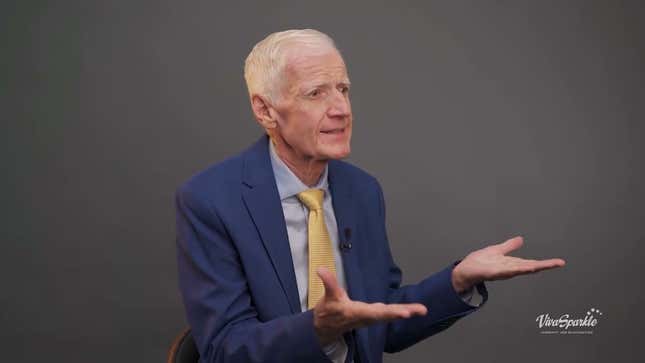
Every few months, the internet explodes with news about Bryan Johnson – the tech entrepreneur who once had his son’s plasma infused with his blood in an attempt to extend his own life.
Johnson’s endeavors to prolong his life and reverse aging through any means possible have been widely met with both intrigue and ridicule. He is not, however, the only person pursuing a prolonged youth.
“When your heart stops beating, you’re guilty of mass cellular genocide,” Kenneth Scott, an 81-year-old biotech investor and real estate developer, told Quartz. “Our culture has the mentality that we were born to die. From childhood, we were taught that we’re going to die. But I suggest that that culture is out of date.”
Like Johnson, Scott is invested in reversing his age. Scott argues that it’s not enough to slow the aging process: He wants to be immortal and is part of an anti-aging movement that has spawned a litany of conferences and experimental treatments. Its adherents often travel internationally, accessing medical treatments that are not approved by the FDA or administered by doctors in the United States.
The octogenarian asserts that he can dance like he did at 18, has youthful skin, and when tested, his biological age reads as 18 years old. Scott estimates that he and his wife spend $70,000 annually on personal treatments to try to reverse aging, on top of the estimated $500,000 to $750,000 he has invested in biotechnology companies that study anti-aging technology.
He maintains a plant-based diet, gets platelet-rich plasma facials (also known as vampire facials), and makes his own shampoo using the leukemia drug Dasatinib and the plant pigment Quercetin. He was inspired to create his own shampoo, in part, because Dasatinib and Quercetin have been studied for their use in improving wool production in sheep.
“I don’t usually put shampoos on my hair. I don’t usually use soaps, except as a lubricant, when I’m shaving,” Scott told Quartz. “But in the interest of perhaps improving the quality of my hair, making it thicker, regenerating on some of these balding spots, getting the color back, I am now doing an experiment.”
When pressed on why he doesn’t use soap, Scott said that he did not want to expose his skin – the largest organ in the body – to “toxins.”
“Have you ever seen a deer out in the wild go to Walmart to buy some shampoo,” Scott asked. “The reality is, wild animals don’t put these things on their body, and we didn’t evolve to do this either.”
Scott’s other treatments are less quirky but more clinical. He gets injected with amniotic exosomes – particles taken from amniotic fluid – at a clinic in Miami, where Scott says the procedure is legal “as long as nobody claims they can do anything.” He spends $500 to $600 a month on anti-aging peptides, though he admits it’s “hard to measure exactly what the benefits are.”
Like Johnson, Scott has traveled to Honduras for gene therapy injections from the biotech startup Minicircle. After that procedure, Scott says he was able to run through the massive Miami airport – where two months prior he had to pause from exhaustion, while making the same trip.
Experts caution that leaving the U.S. for treatments that remain unapproved by the FDA is dangerous and that the research conducted in these spaces is not held to the same standards as the scientific work conducted by universities and pharmaceutical companies.
At 81, however, Scott maintains that he does not have time to wait for the FDA to approve the age-reversal treatments needed to achieve his goal of immorality.
“My concern is me, not the regulations which have been created,” he said. “I have a life expectancy of seven years at this point. I don’t really have a lot of interest in five-year trial programs, so I just get on and do it.”